Group Members
Chairman
dr hab. Hadrian Ciechanowski (Nicolaus Copernicus University in Toruń)
-min.jpg) Assistant Professor in the Department of Methodology, Didactics and Cultural History at the Faculty of History of Nicolaus Copernicus University in Toruń (from 2019), previously associated with the National Archives in Toruń (2013-2019). Historian and archivist specializing in the history of bureaucracy and Poland in the 19th and 20th centuries. For years, he has also been interested in problems related to egodocuments, egodocumentality and the anthropologizing current in history and archival science. In 2019-2023, the head of the NCN grant entitled The system of public registers in the Kingdom of Prussia and its impact on the development of public registers in Poland in the 20th and 21st centuries. Member of the editorial board of the series published by Brill Publishing House: Studies in the History of Privacy https://brill.com/page/priv. His most important works include: The system of public registers in the Kingdom of Prussia and its impact on the development of public registers in Poland in the 20th and 21st centuries, Toruń 2023; "McDonaldization of Archives (an introduction to discussion)", Archeion, vol. 124, 2023; "Archiwum jako miejsce zapomnienia" ["Archives as a place of oblivion"], [w:] Archiwum, archiwistyka, kultura. Antologia, red. W. Chorążyczewski, W. Piasek, A. Rosa, Toruń 2020; "O spuściźnie inaczej czyli nieśmiertelność otwarta w archiwaliach" ["On private Archives in a different way or immortality open in Archives"], [w:] Archiwum, archiwistyka, kultura. Antologia, red. W. Chorążyczewski, W. Piasek, A. Rosa, Toruń 2020; "Między istnieniem a nieistnieniem. Metryka Koronna Stanisława Leszczyńskiego" ["Between existence and non-existence. Crown chancery books of king Stanisław Leszczyński"], [w:] Belliculum Diplomaticum V Lublinense. Dokumenty, kancelarie i archiwa między wschodem i zachodem Europy, red. A. Górak, M. Szabaciuk, Lublin 2014.
Assistant Professor in the Department of Methodology, Didactics and Cultural History at the Faculty of History of Nicolaus Copernicus University in Toruń (from 2019), previously associated with the National Archives in Toruń (2013-2019). Historian and archivist specializing in the history of bureaucracy and Poland in the 19th and 20th centuries. For years, he has also been interested in problems related to egodocuments, egodocumentality and the anthropologizing current in history and archival science. In 2019-2023, the head of the NCN grant entitled The system of public registers in the Kingdom of Prussia and its impact on the development of public registers in Poland in the 20th and 21st centuries. Member of the editorial board of the series published by Brill Publishing House: Studies in the History of Privacy https://brill.com/page/priv. His most important works include: The system of public registers in the Kingdom of Prussia and its impact on the development of public registers in Poland in the 20th and 21st centuries, Toruń 2023; "McDonaldization of Archives (an introduction to discussion)", Archeion, vol. 124, 2023; "Archiwum jako miejsce zapomnienia" ["Archives as a place of oblivion"], [w:] Archiwum, archiwistyka, kultura. Antologia, red. W. Chorążyczewski, W. Piasek, A. Rosa, Toruń 2020; "O spuściźnie inaczej czyli nieśmiertelność otwarta w archiwaliach" ["On private Archives in a different way or immortality open in Archives"], [w:] Archiwum, archiwistyka, kultura. Antologia, red. W. Chorążyczewski, W. Piasek, A. Rosa, Toruń 2020; "Między istnieniem a nieistnieniem. Metryka Koronna Stanisława Leszczyńskiego" ["Between existence and non-existence. Crown chancery books of king Stanisław Leszczyński"], [w:] Belliculum Diplomaticum V Lublinense. Dokumenty, kancelarie i archiwa między wschodem i zachodem Europy, red. A. Górak, M. Szabaciuk, Lublin 2014.
Vice-chairman
dr hab. Michaël Green, prof. UL (University of Lodz)
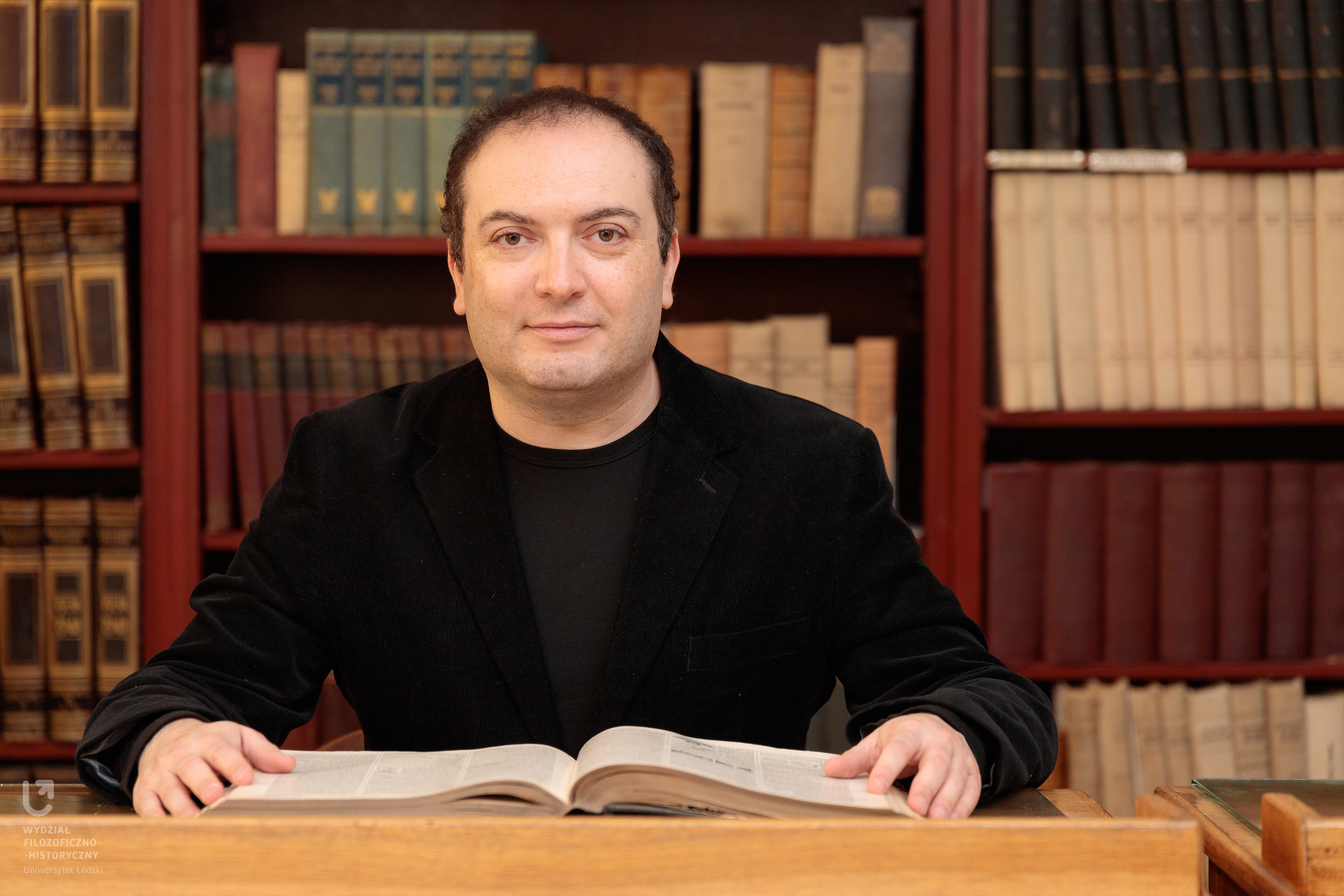
Dr. hab. Michaël Green is professor at the University of Lodz. He received his PhD from the University of Groningen in the Netherlands and since then has worked in various universities in Switzerland, Germany, Poland and Denmark. He specialises on early modern religious, social and cultural history, with specific emphasis on religious minorities, notions of privacy and daily life. Egodocuments are one of the key elements to his research and he is the co-editor of the Brill series Egodocuments and History https://brill.com/display/serial/EGDO and the founding editor of the Studies in the History of Privacy https://brill.com/page/priv. Among his publications related to the field of egodocuments: Le Grand Tour 1701-1703. Lettres de Henry Bentinck et de son précepteur Paul Rapin-Thoyras, à Hans Willem Bentinck. Édition critique établie par Michael Green, series: Vie des Huguenots, vol. 89, Paris: Honoré Champion, 2021. ISBN 9782745355393 https://www.honorechampion.com/fr/champion/12620-book-08535539-9782745355393.html and The Huguenot Jean Rou (1638-1711): Scholar, Educator, Civil Servant, series: Vie des Huguenots, vol. 69, Paris: Honoré Champion, 2015. ISBN 9782745327581 http://www.honorechampion.com/fr/champion/8953-book-08532758-9782745327581.html.
prof. dr hab. Waldemar Chorążyczewski (Nicolaus Copernicus University in Toruń)
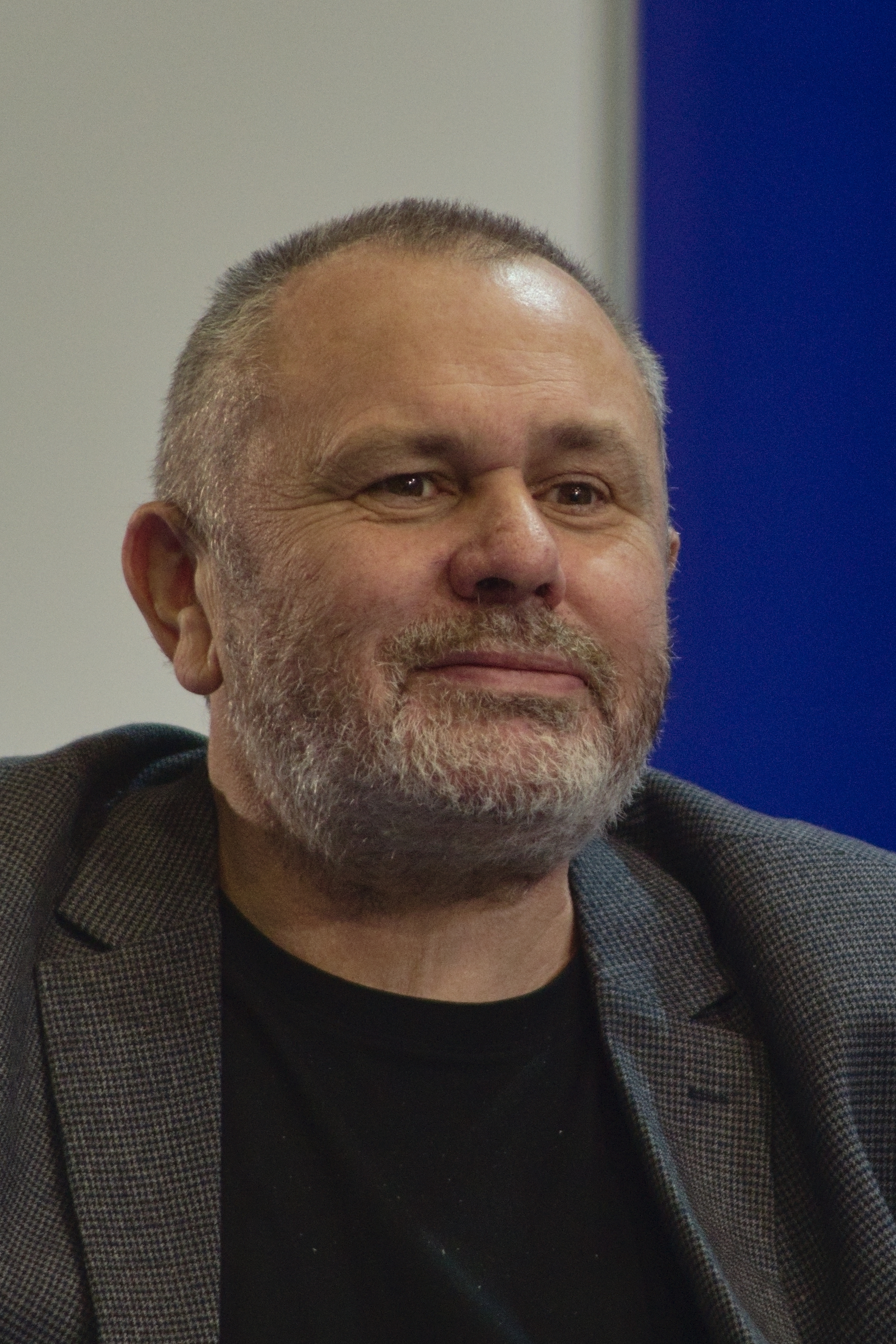
He worked at the National Archives in Torun as a junior archivist and archivist (1991 - 1992) and at the Nicolaus Copernicus University in Toruń as an assistant, assistant professor, associate professor, university professor and professor (from 1992 to the present). From 2010 to 2013, he was a researcher at Vilnius University. In 1997, he received a doctoral degree in history, and in 2008, he received a postdoctoral degree in humanities with a specialization in archival science and modern history. He was awarded the title of professor in 2023. The supervisor of his doctoral dissertation, entitled Prywatne archiwa polityczne w Polsce XVI wieku [Private political archives in 16th century Poland] was Bohdan Ryszewski. His habilitation was based on the book Przemiany organizacyjne polskiej kancelarii królewskiej u progu czasów nowożytnych [Organizational transformations of the Polish royal chancellery at the threshold of modern times]. He received the title of professor based on the monograph entitled Zachęta do archiwistyki [Encouragement for archival science]. At the Nicolaus Copernicus University, he held the following positions: supervisor of the Student Academic Circle of Archivists (1995-2002), tutor of the didactic team of archivistics (1998-2000), head of the Postgraduate Study of Archivistics (2001-2005), deputy director of the Institute of History and Archival Studies (2005-2012), senator of the Nicolaus Copernicus University (2008-2012), vice-dean of the Faculty of History (2012-2019), head of the Department of Archival Studies (2018-2019). Since 1999, he has been working with the community of climatologists and dendrochronologists in Toruń. Currently, he participates in the work of the Center for the Study of Climate Change at Nicolaus Copernicus University. He is the author of the books Pamięć Domu Komierowskich. Studium z dziejów rodu szlacheckiego w XVIII wieku [Memory of the Komierowski House. A Study in the History of a Noble Family in the Eighteenth Century] (with Stanisław Roszak, 2002), Przemiany organizacyjne polskiej kancelarii królewskiej u progu czasów nowożytnych [Organizational Transformations of the Polish Royal Chancellery at the Threshold of Modern Times] (2007) and Zachęta do archiwistyki [Encouragement for archival science] (2022), as well as editor of the publishing series Polska kancelaria królewska czasów nowożytnych między władzą a społeczeństwem [Polish royal chancellery of modern times between power and society] (with Wojciech Krawczuk) and Toruńskie Konfrontacje Archiwalne [Toruń Archival Confrontations] (with Agnieszka Rosa and others on some volumes). He published Dziennik podróży Butlera do Włoch i Niemiec w latach 1779-1780 [Butler's Journal of Travels to Italy and Germany in 1779-1780] (with Arvydas Pacevicius and Agnieszka Rosa, Vilnius 2013).
prof. dr Arvydas Pacevičius (Vilnius University)
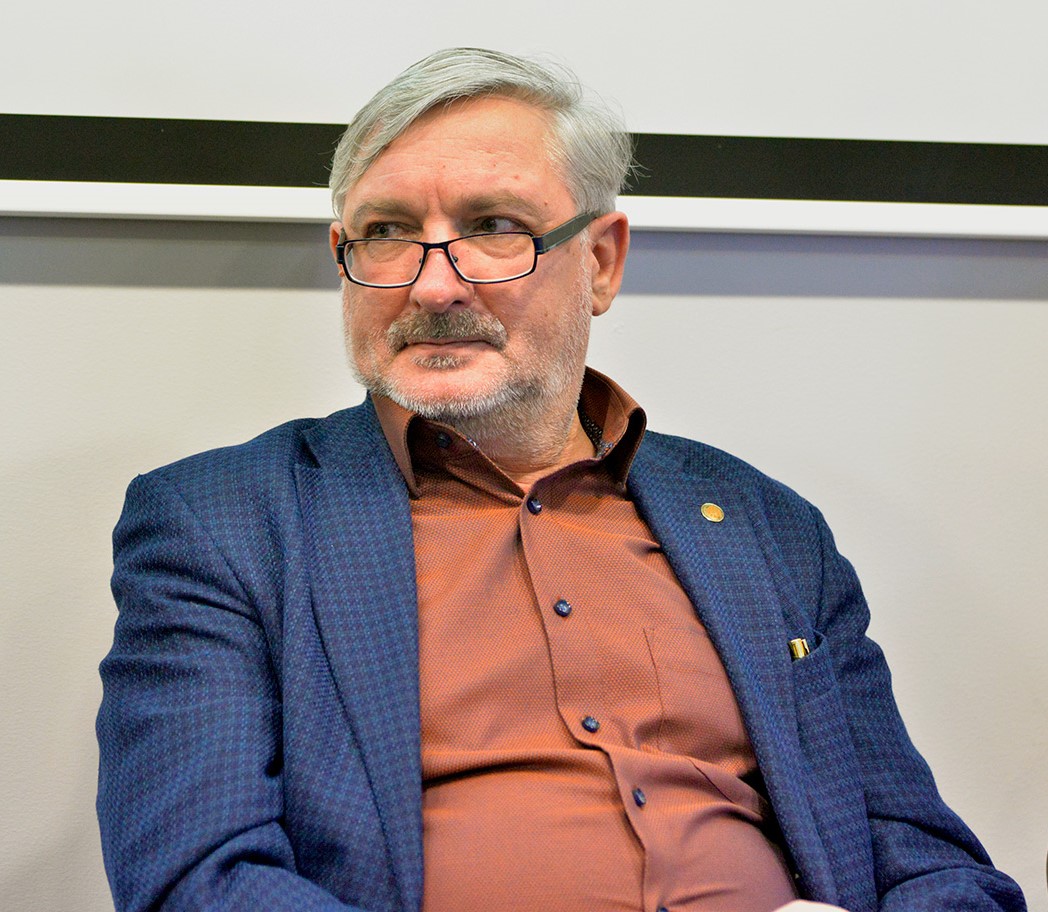 Dr. Arvydas Pacevičius is Professor in the Faculty of Communication of Vilnius University (since 2009), PhD in the field of Communication and Information (2001). Research interests of A. Pacevičius are as follows: Social and cultural communication, History of libraries and reading, Collection development, Digital humanities, Heritage of Grand Duchy of Lithuania, Ego-documents in European context, Scholarly Communication. He has published more than 160 articles in Lithuanian and foreign scientific journals. The last publication – the monograph ‘Dr Faustus of Samogitia: The origin, development and heritage of the Library of Jurgis Ambraziejus Pabrėža’ (Vilnius, 2023; Co-author Nijolė Raudytė). Pacevičius teaches courses such as ‘Preparation of Research Thesis’, ‘Ego-Documents in the European Context’, ‘Creative Writing’, ‘New Librarianship’. Pacevičius was leader of national research projects ‘Church Archives Information System’ (acronym BARIS), 2006–2009; ‘Bibliotheca Lituana: Development of Collections in Memory Institutions’ (BLAIR), 2010–2011; ‘Ego-documental Heritage of Lithuania’ (LEGODOC), 2010–2013, ‘In the Clutches of Scholarly Information: Book of Gifts to the Vilnius University, 1820–1832’, 2021–2022. The main outcome of these projects sponsored by Research Council of Lithuania were more than 50 scientific publications, among them The Diary of Butler's Journey to Italy and Germany in 1779–1780 (Vilnius, 2013); Pastoral Letter to the Priests of the Samogitian Diocese by Josaphat Michael Karp (Vilnius, 2013); Diary of the 1752–1754 Journey of Józef Jerzy Hylzen (Vilnius, 2013); Bibliotheca Lituana II. Collections of Memory Institutions (Vilnius, 2012); Forgotten Patronage: A Book of Gifts to the Vilnius University Library, 1792–1832 (Vilnius, 2010), Michał Girdwojń (1841–1925). Autobiography (Vilnius, 2028), The Imperial University of Vilna in the Clutches of Scholarly Information, 1803–1832 (Vilnius, 2022) etc. Pacevičius was editor or compiler of all of these books. Pacevicius is now leading the scientific project ‘Homo viator: Travel space and Experiences of Travellers in Early modern Lithuania’ (2021-2024, funded by Research Council of Lithuania). Pacevičius is also involved as investigator in an international research project ‘The occurrence of extreme weather, climate and water events in Poland from the 11th to 18th centuries in the light of multiproxy data’ (2021–2025) funded by National Science Centre. Pacevičius contributed as an expert of Research Council of Lithuania and Culture Council of Lithuania. He is editorial board member of scientific journals Archeion, Archiwa-Kancelarie-Zbiory, Knygotyra, Roczniki Biblioteczne. Pacevičius' achievements recognised with the prestigious Martynas Mažvydas National Award (2006), Vilnius University Rector's Science Award (2011), National Award of the Ministry of Culture of the Republic of Lithuania (2023).
Dr. Arvydas Pacevičius is Professor in the Faculty of Communication of Vilnius University (since 2009), PhD in the field of Communication and Information (2001). Research interests of A. Pacevičius are as follows: Social and cultural communication, History of libraries and reading, Collection development, Digital humanities, Heritage of Grand Duchy of Lithuania, Ego-documents in European context, Scholarly Communication. He has published more than 160 articles in Lithuanian and foreign scientific journals. The last publication – the monograph ‘Dr Faustus of Samogitia: The origin, development and heritage of the Library of Jurgis Ambraziejus Pabrėža’ (Vilnius, 2023; Co-author Nijolė Raudytė). Pacevičius teaches courses such as ‘Preparation of Research Thesis’, ‘Ego-Documents in the European Context’, ‘Creative Writing’, ‘New Librarianship’. Pacevičius was leader of national research projects ‘Church Archives Information System’ (acronym BARIS), 2006–2009; ‘Bibliotheca Lituana: Development of Collections in Memory Institutions’ (BLAIR), 2010–2011; ‘Ego-documental Heritage of Lithuania’ (LEGODOC), 2010–2013, ‘In the Clutches of Scholarly Information: Book of Gifts to the Vilnius University, 1820–1832’, 2021–2022. The main outcome of these projects sponsored by Research Council of Lithuania were more than 50 scientific publications, among them The Diary of Butler's Journey to Italy and Germany in 1779–1780 (Vilnius, 2013); Pastoral Letter to the Priests of the Samogitian Diocese by Josaphat Michael Karp (Vilnius, 2013); Diary of the 1752–1754 Journey of Józef Jerzy Hylzen (Vilnius, 2013); Bibliotheca Lituana II. Collections of Memory Institutions (Vilnius, 2012); Forgotten Patronage: A Book of Gifts to the Vilnius University Library, 1792–1832 (Vilnius, 2010), Michał Girdwojń (1841–1925). Autobiography (Vilnius, 2028), The Imperial University of Vilna in the Clutches of Scholarly Information, 1803–1832 (Vilnius, 2022) etc. Pacevičius was editor or compiler of all of these books. Pacevicius is now leading the scientific project ‘Homo viator: Travel space and Experiences of Travellers in Early modern Lithuania’ (2021-2024, funded by Research Council of Lithuania). Pacevičius is also involved as investigator in an international research project ‘The occurrence of extreme weather, climate and water events in Poland from the 11th to 18th centuries in the light of multiproxy data’ (2021–2025) funded by National Science Centre. Pacevičius contributed as an expert of Research Council of Lithuania and Culture Council of Lithuania. He is editorial board member of scientific journals Archeion, Archiwa-Kancelarie-Zbiory, Knygotyra, Roczniki Biblioteczne. Pacevičius' achievements recognised with the prestigious Martynas Mažvydas National Award (2006), Vilnius University Rector's Science Award (2011), National Award of the Ministry of Culture of the Republic of Lithuania (2023).
dr hab. Małgorzata Strzelecka, prof. NCU (Nicolaus Copernicus University in Toruń)
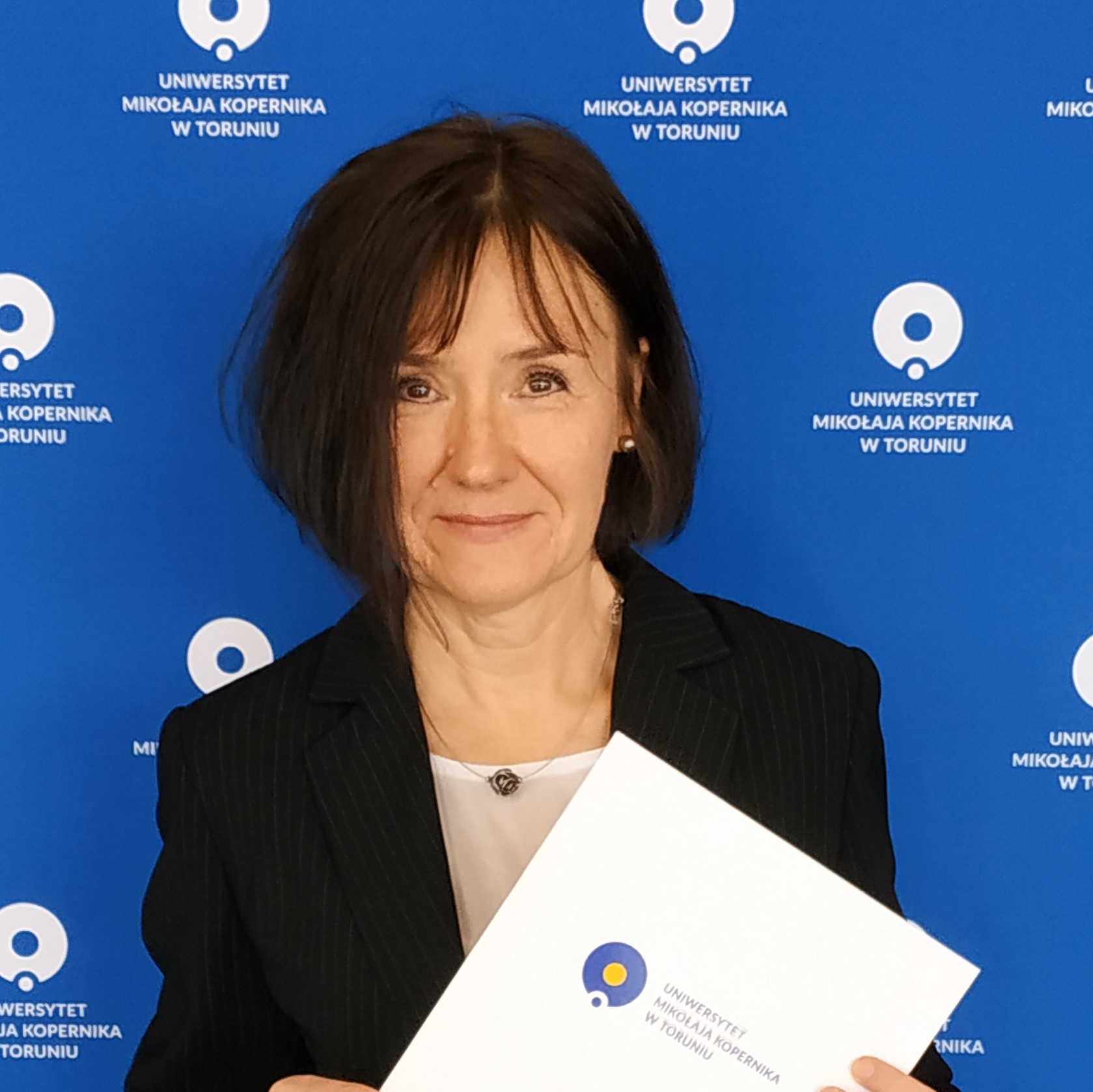
Doctor of Humanities (with a specialization in 20th century history and the didactics of history), professor at Nicolaus Copernicus University in Torun. Since 2000, employee of the Institute of History and Archival Studies at Nicolaus Copernicus University. Since 1999, employee of the University High School. Member of the Polish Historical Society & secretary of the Toruń branch. Member of the Commission on the Didactics of History at the Polish Historical Society. Associate of the Commission on the Didactics of History of the Committee on Historical Sciences of the Polish Academy of Sciences. In 2004 -2018 co-editor of a collection of scientific and didactic studies (XII volumes) in the series: Toruń Didactic Meetings. In her research work, she focuses on the analysis of the journalistic and social activity of the intellectuals gathered around the editorial offices of "Tygodnik Powszechny" and "Znak" monthly, on the activity of the representatives of the broadly understood social movement Znak, which consisted of, among others. the editorial offices of Catholic magazines ("Tygodnik Powszechny", "Znak" and "Więź" monthlies), five Clubs of Catholic Intelligentsia, the environment of the bimonthly "Chrześcijanin w Świecie", the Center for Documentation and Social Studies and the Znak Parliamentary Circle. Author of three monographs: Trudne kompromisy. Środowisko "Tygodnika Powszechnego" wobec reform systemu oświaty i wychowania w latach 1945-1989 [Difficult Compromises. The environment of "Tygodnik Powszechny" vis-à-vis reforms of the educational system and upbringing in 1945-1989], (2009); Między minimalizmem a maksymalizmem. Dylematy ideowe Stanisława Stommy i Janusza Zabłockiego [Between Minimalism and Maximalism. Ideological dilemmas of Stanisław Stomma and Janusz Zabłocki], (2015); Dyszel w głowie Jerzego Turowicza. Wiara, idee i racje w świetle publicystki z lat 1932-1939 [The drawbar in Jerzy Turowicz's Head. Faith, ideas and rationale in the light of journalism from 1932-1939], (2023).
dr Anna Brzezińska (University of Lodz)
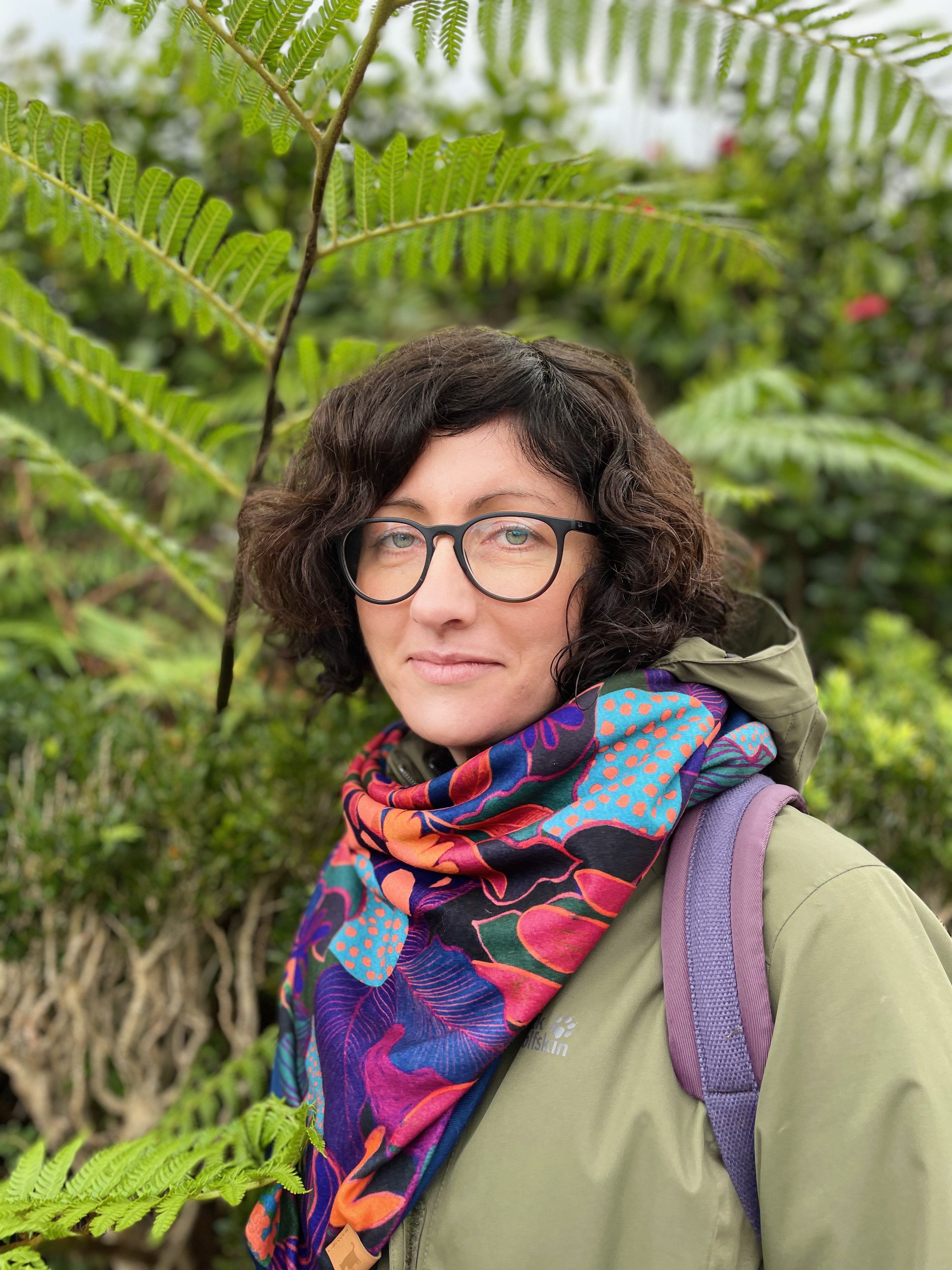
Assistant Professor at the Department of History of Historiography and Auxiliary Sciences of History, University of Lodz, member of the Committee on Theory and History of Historiography and Methodology of History of the Committee of Historical Sciences of the Polish Academy of Sciences and the Historiographical Society. Research interests: history of historiography, intellectual history. Selected publications: Spór o średniowiecze. Z rozważań nad tożsamością kulturową Europy. Jacques Le Goff. Jerzy Kłoczowski. Aron Guriewicz [The dispute over the Middle Ages. Reflections on the cultural identity of Europe. Jacques Le Goff. Jerzy Kloczowski. Aron Guriewicz] (Wydawnictwo UŁ, 2018); "Mam na Pana nowy zamach…" Wybór korespondencji Jerzego Giedroycia z historykami i świadkami historii 1946-2000 ["Mam na Pana nowy zamach…" A selection of Jerzy Giedroyc's correspondence with historians and witnesses to history 1946-2000] (wybór oprac. S. M. Nowinowski, R. Stobiecki przy współpracy A. Brzezińskiej i M. Przybysz-Gralewskiej, t. 1-3, Wydawnictwo UŁ, 2019); "Historyk profesjonalista i społeczeństwo. O potrzebie słuchania" ["The professional historian and the public. On the need to listen"] (Historyka. Studia Metodologiczne 2021, nr 51).
dr Veronika Girininkaitė (Vilnius University)
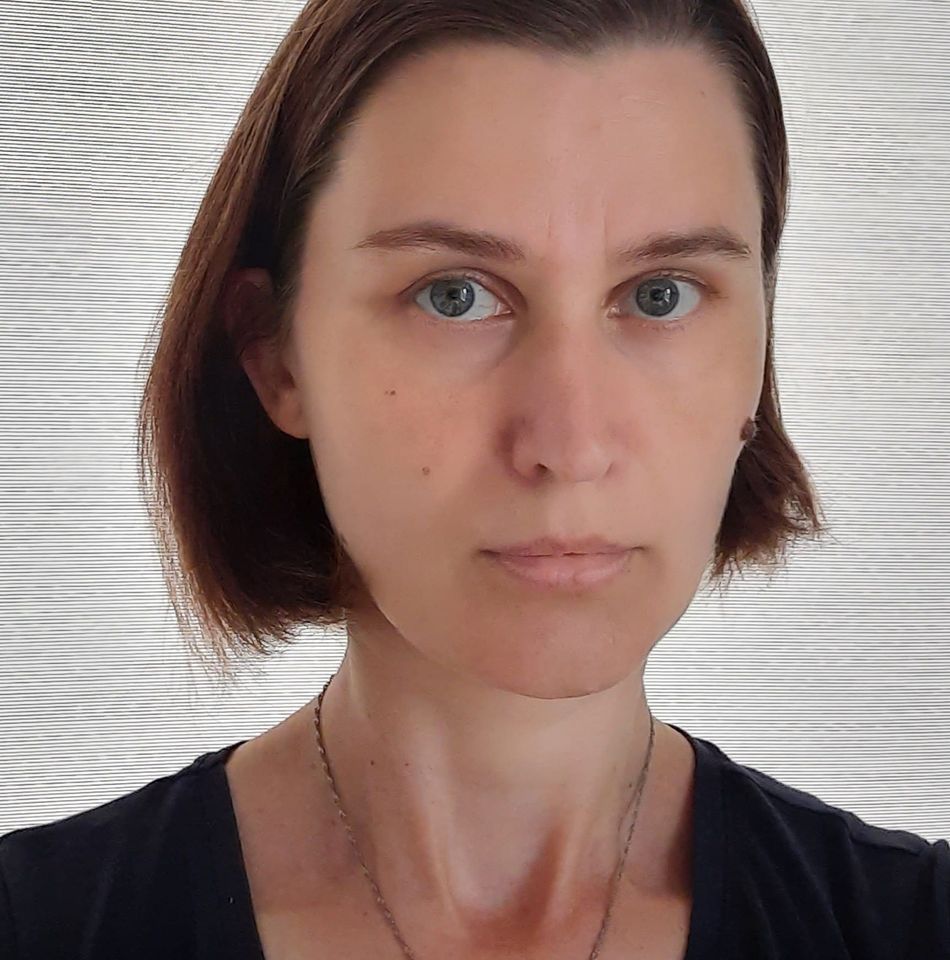
Veronika Girininkaitė, librarian and linguist, among the research interests: ego documents and their use in Sociolinguistics, multilingualism, and correspondence studies. Studied in Vilnius university: BA cum laude in Russian philology in 2003, MA magna cum laude in Slavic philology in 2005, Phd in 2019. Title of the thesis Interaction of the languages and cultures in the idiolect of a multilingual. Case study: The Diary (1904–1910 ) of Vytautas Civinskis (Witold Cywiński) - thesis. From 2005 works in the Vilniaus University Library, from 2006 in it‘s Manuscript Division. Participates in conferences and writes scientific articles based on the research of the manuscripts stored in the VU library. Languages: Lithuanian, Russian, English, Polish, and, at present, passive knowledge of German, Norwegian (bokmål), and Latin.
dr Agnieszka Rosa (Nicolaus Copernicus University in Toruń)
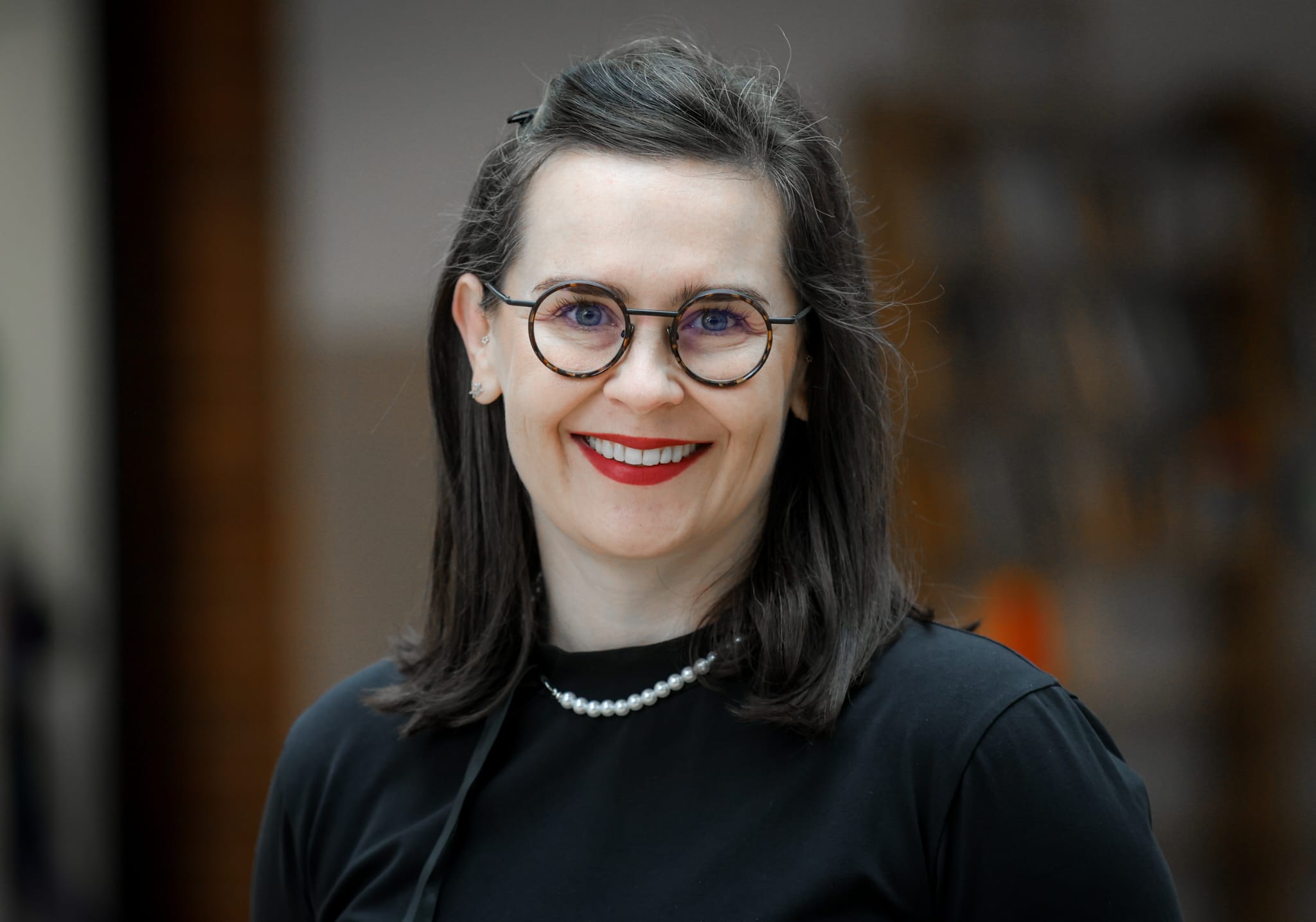
Doctor of humanities in the discipline of history, archival educator, and archival historian who combines education in history and archives with pedagogical preparation and interests in informatology. Since 2010, she has been working as an assistant professor at the Institute of History and Archival Studies at Nicolaus Copernicus University in Torun, actively participating in the training of young archival cadres. Her research interests, which have resulted in scientific publications and completed projects, include archival science, especially the educational activities of archives and the computerization of archives, the education of archivists, research on archives users, Web archiving, and egodocument research.
She began her adventure with egodocuments in 2004, conducting research on middle-class wills as egodocuments, looking for traces left in them by testators, disregarding accepted conventions and imposed solutions. Subsequently, she analyzed the creations of the Polish royal chancellery, looking for the personal traces of the documentation creators in them. From 2010 to 2013, she was the contractor of the Lithuanian government's LEGODOK grant, within the framework of which she prepared a source edition and egodocumental analysis of Michal Butler's travel diary. She also conducted searches in Polish archives for Lithuanian egodocuments and co-created their list in the form of an electronic database. Subsequently, she expanded her research on egodocuments to include other sources, including peasant supplications, as well as related sources that form larger wholes, structures, and arrangements, including the legacies of archivists, seeing in them features that make them similar to genre egodocuments, allowing us to learn about the author, his personality and experiences. She analyzed the archival resource, its individual parts, and its structure. She recognized in the layout of archival materials, the ways of archiving documentation, or the keeping of a registry the traces of documentation creators and documentation cultures. She recognized that various sources, structures, and arrangements of sources could be studied as egodocuments, not in terms of genre, but methodologically. Their feature is egodocumentality. She bases her research not only on a genre view of egodocuments but on a methodological approach to sources treated as egodocuments, based on which one can learn about the personality, character traits, or temperament of the creators/authors. She called this method egodocumentary analysis.
mgr Adriana Kapała (Nicolaus Copernicus University in Toruń)
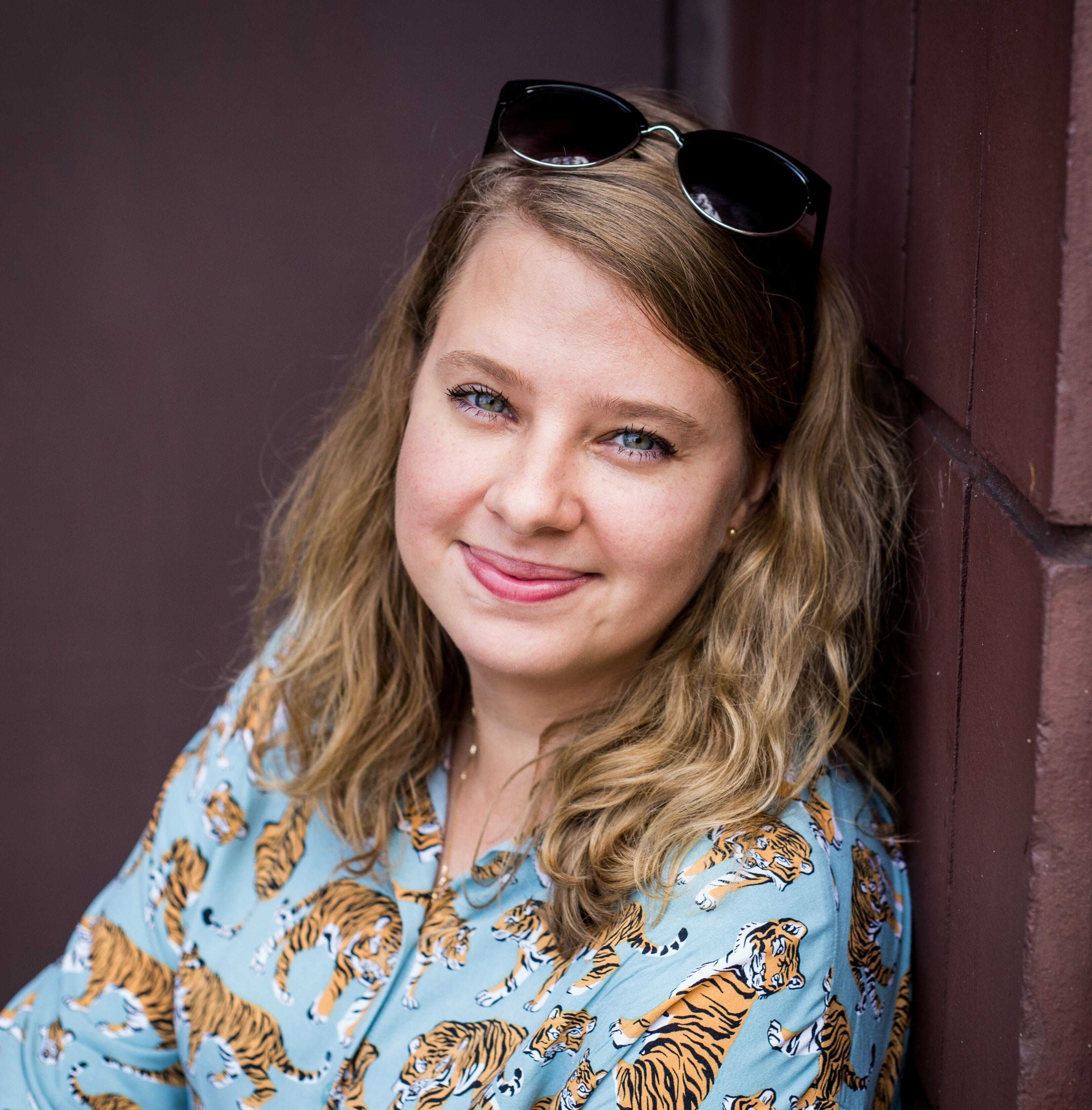
Historian and archivist (graduate of the Jagiellonian University). At the Doctoral School of Humanities, Theological and Artistic Sciences at the University of Krakow, she is preparing a dissertation on oral history in social archives (under the supervision of Prof. Waldemar Chorążyczewski and Dr. Magdalena Wiśniewska-Drewniak). Graduate of Gender Studies at the Institute of Literary Research of the Polish Academy of Sciences. Coordinator of training and education at the Center for Community Archives. Conducts webinars and trainings and coordinates meetings at cultural institutions interested in starting/supporting community archives. She teaches community archivists how to implement oral history interviews and how to describe, process and make them available online at www.zbioryspoleczne.pl. Previously, she worked at the KARTA Center Foundation, where, among other things, she coordinated oral history projects and conducted training on recording testimonies. From 2019 to 2022, she was chairwoman of the Audit Committee of the Polish Oral History Association and currently serves as vice president. She is in love with old movies, tennis and literature by day.

